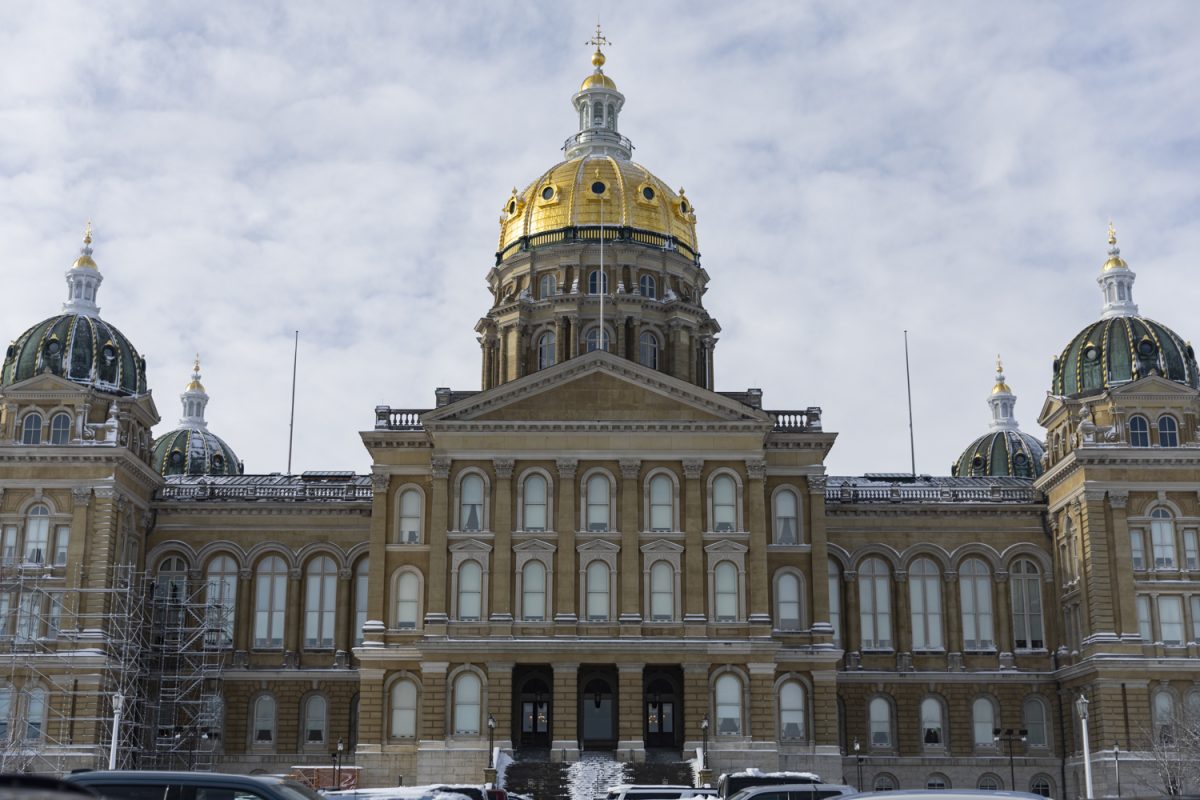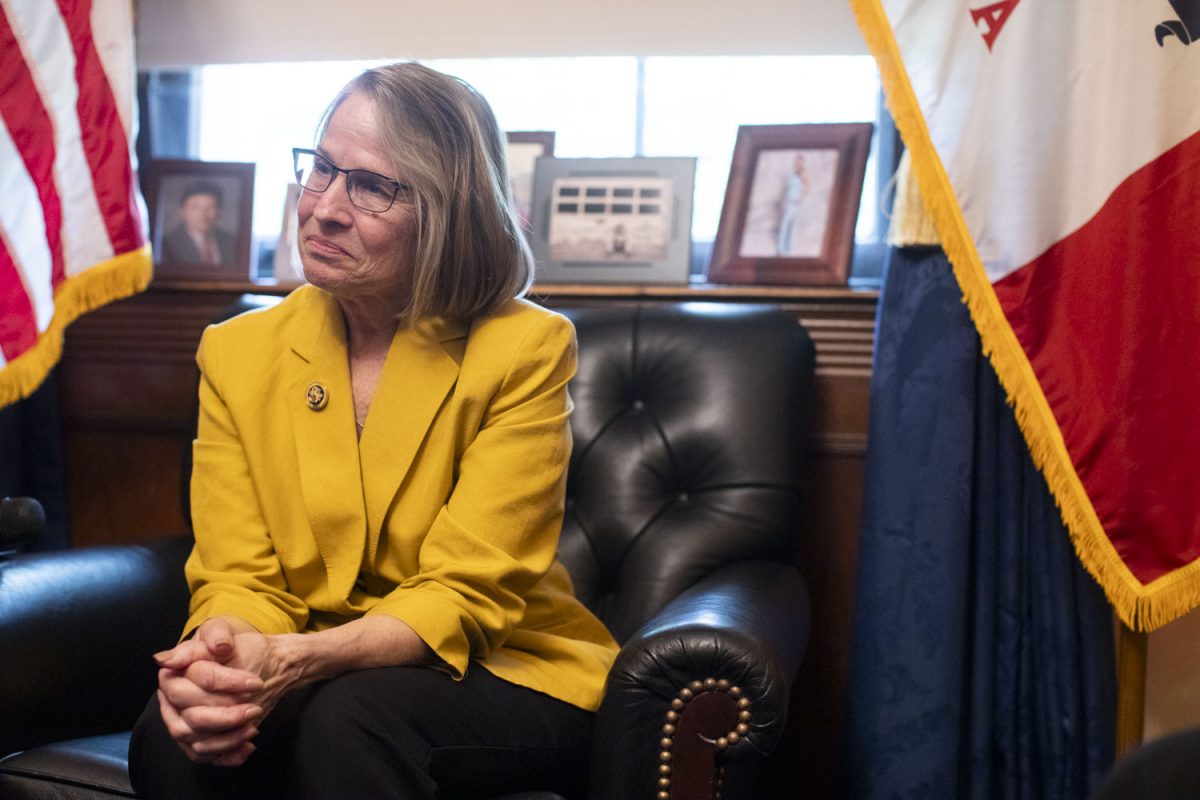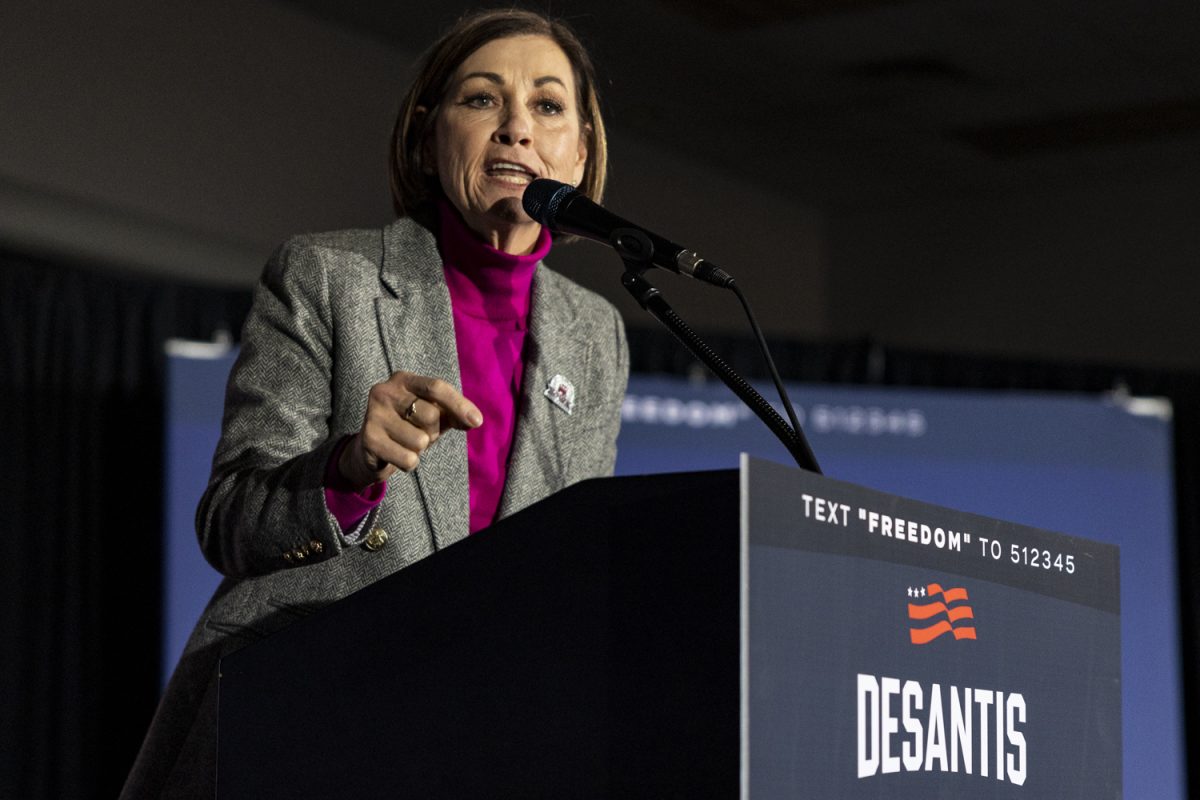Iowa House lawmakers approved a bill to increase statewide elected official pay by $10,000 next year on Thursday. The bill would also include a cost-of-living increase for Iowa lawmaker’s pay, similar to the amount the state agrees with public employee unions.
Rep. Joel Fry, R-Osceola who led the bill Thursday, said the proposal will help recruit and retain leaders in the state.
“If we want to continue to maintain this bright future that Iowa has with the brightest leaders that Iowa has,” Fry said. “This is a key to how we attract and retain some of those leaders in the state of Iowa.”
Currently, state lawmakers make $25,000 a year, with legislative leaders making $37,500 a year, and are given $178 per day for per diem costs like housing and food.
Lawmakers are reimbursed for up to 100 days on odd years and 110 on even years totaling $17,800 annually. Lawmakers are also reimbursed 50 cents per mile for travel.
Currently, Iowa Gov. Kim Reynolds makes $130,000 a year, with Iowa Attorney General Brenna Bird making $123,000, and all other statewide elected officials making $123,000 a year.
Under the new proposal, all would receive a $10,000 raise.
House lawmakers also passed a resolution, which still requires the approval of the Senate, to require the legislative council to meet to adopt a new legislative staff pay matrix.
Mental Health realignment headed to governor’s desk
Iowa House Republicans gave final approval to Reynolds’ proposal to realign the state’s mental health and disability service districts with the state’s substance abuse districts.
The bill, House File 2673, would condense Iowa’s 13 Mental Health and Disability Service regions and 19 Integrated Provider Networks, which provide care for substance abuse disorders, into seven new Behavioral Health Districts, aligning funding and priorities between the two previously separate systems.
The House concurred with a Senate amendment on the bill on Thursday sending the bill to the governor for her signature.
Following the House’s vote Reynolds released a statement applauding the House’s decision and the legislation.
“Iowa has made significant progress in behavioral health care in recent years, from expanding adult services to establishing the first children’s mental health system and increasing funding,” Reynolds said in a news release Thursday. “But more must be done to align services, making it easier for Iowans to get the help they need and for providers to better coordinate their care. This legislation takes the next step to strengthen the system by aligning services statewide.”
The bill would also collapse the state’s Tabacco Use Prevention and Control Program under these new districts, which the Iowa Tabacco Prevention Alliance is against, and the alliance says the collapse would make Iowa the only state in the country without a standalone program.
“We know that tobacco prevention programs work; now is not the time to scale back our efforts that have been proven to save the lives of Iowans,” the alliance said in a statement provided to members of the media. “We urge Iowa officials to ensure that the state’s lifesaving tobacco prevention programs continue despite passage of this bill.”
Open meetings violation
A bill to increase fines for open meetings law violations passed the Iowa Senate with bipartisan support on Thursday. With the Senate amending the bill it goes back to the House for their consideration.
The bill increased the maximum fine for participating in violation of an open meeting law from $500 to $2,500, and the maximum fine for knowingly violating Iowa’s open meeting law from $2,500 to $12,500.
The bill originally included provisions requiring elected officials to participate in open meeting law training, but the Senate amended the bill to remove the provision. Sen. Scott Webster, R-Bettendorf, voiced support for continuing conversations about training for electeds in the next session.
The Senate also amended language in the bill to clarify what an open meeting is to prevent small gatherings of elected officials at social or political events from violating open meetings law.
It requires debate on policy before the body does not take place during the gathering.
The bill passed unanimously.
Senate lawmakers pass bill to require county supervisor districts
A bill passed by the Iowa Senate Thursday would require counties of more than 125,000 residents to adopt county supervisor representation districts which is aimed at increasing rural representation on county board of supervisors in Iowa’s largest counties — including Johnson County.
The bill passed 32-15 with all Republicans in support and all Democrats opposed.
Sen. Dawn Driscoll, R-Williamsburg, said the bill will amplify rural voters.
“Rural voices matter just as much as the urban votes do,” Driscoll said. “Everybody needs to be called on, small-town residents need to be able to call and resonate with their county supervisors … so that way they can have a voice.”
Democrats said the bill would remove local control for counties to decide what is best for their counties when reviewing their county charter.
Democrats also said mandating districts be delineated by population will result in even more urban representation than currently exists in counties like Scott County, which Sen. Cindy Winckler, D-Davenport, represents.
“Although the intent is more rural representation in Scott County, you will be giving up rural representation by mandating that the election is done by districts,” Winckler said. “Local control matters.”
The counties affected by the bill will not have to implement the provisions until the 2026 midterm election.










